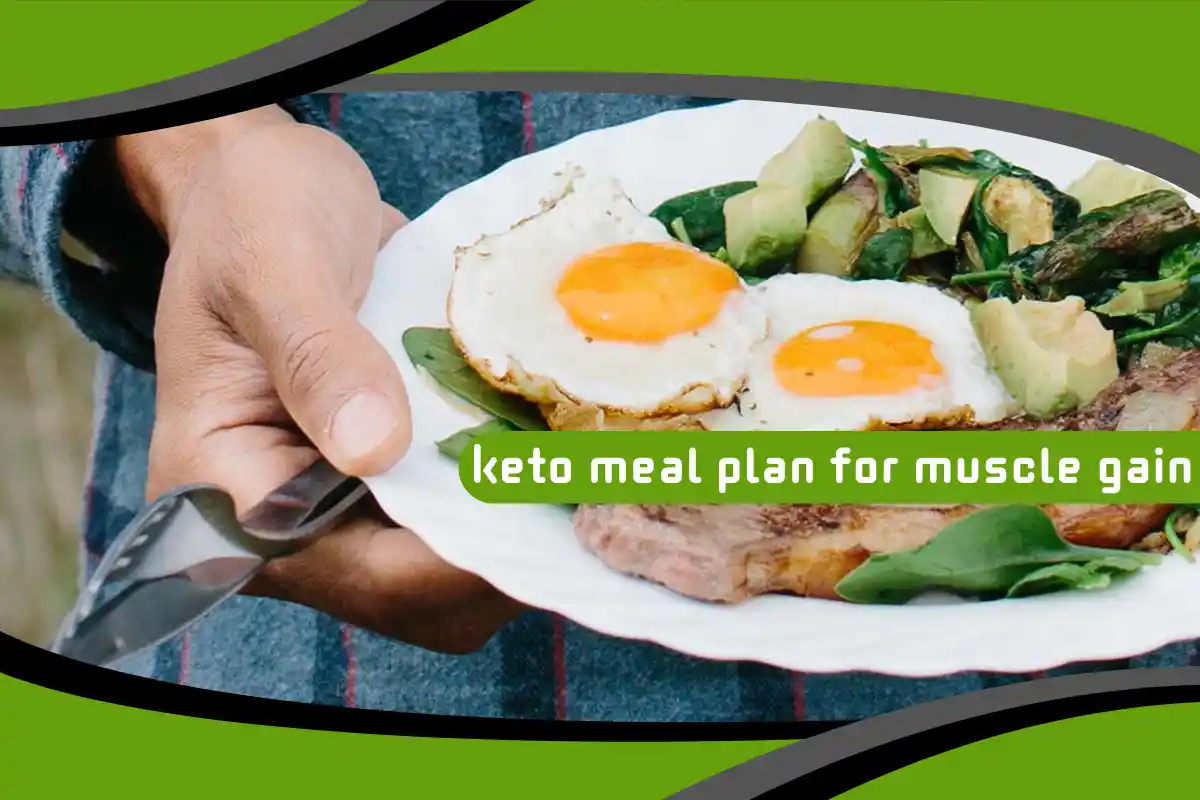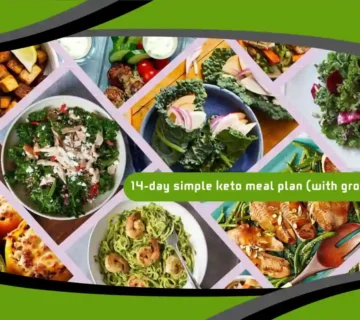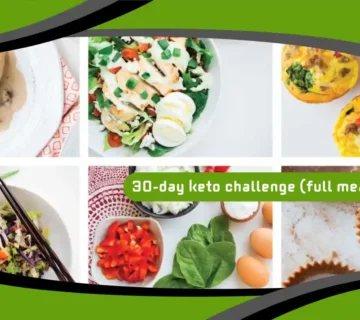Building muscle while following a ketogenic (keto) diet may seem like an unusual combination, but with the right approach, it is entirely achievable. The keto diet, which emphasizes low carbohydrate intake and high fat consumption, can support muscle growth if tailored to provide adequate protein and energy for workouts and recovery. This article explores the key principles of a keto meal plan designed for muscle gain, focusing on macronutrient ratios, meal timing, and food choices that optimize muscle building without compromising the benefits of ketosis.

Understanding the Basics of the Keto Diet for Muscle Gain
The ketogenic diet is based on a high-fat, moderate-protein, and very low-carb approach. This eating pattern shifts the body into a state of ketosis, where it burns fat for fuel instead of glucose. For those aiming to gain muscle, it’s crucial to adjust the typical keto diet to ensure sufficient protein intake for muscle repair and growth. The key lies in finding the right balance between fat and protein while keeping carbs minimal.
The Importance of Protein in Muscle Building on Keto
Protein is essential for muscle growth and repair. On a keto diet, protein intake is typically set to moderate levels, but for muscle gain, it may need to be adjusted. Aim for about 1.6 to 2.2 grams of protein per kilogram of body weight per day, depending on your training intensity and goals. Consuming adequate protein will not only promote muscle repair but also support muscle protein synthesis, which is crucial for muscle growth.
Macronutrient Ratios for Keto and Muscle Gain
A well-balanced keto diet for muscle gain usually consists of 60-75% fats, 20-30% protein, and 5-10% carbohydrates. This ratio allows the body to enter ketosis while providing enough protein to fuel muscle growth. The precise macronutrient breakdown will vary based on individual factors such as body composition, activity level, and metabolic rate, but the key is maintaining low carb levels to keep the body in ketosis.
The Role of Healthy Fats in Supporting Muscle Growth
Healthy fats are the cornerstone of the keto diet and provide a steady source of energy for intense workouts. Incorporating sources of omega-3 fatty acids, monounsaturated fats, and medium-chain triglycerides (MCTs) can help increase energy levels and promote fat loss while building lean muscle. Healthy fats support hormone production, including testosterone, which plays a critical role in muscle development.
Keto Meal Plan for Type 2 Diabetes: A Complete Guide to Blood Sugar Control and Weight Loss
Carb Cycling on Keto: Can It Enhance Muscle Gain?
While the keto diet emphasizes low carbs, some athletes and bodybuilders opt for carb cycling to maximize muscle gain. Carb cycling involves alternating between high-carb and low-carb days. This strategy can help replenish glycogen stores in muscles, supporting intense workouts and promoting muscle recovery while still maintaining the overall principles of the keto diet.
Pre-Workout Nutrition: Fueling Your Muscles Before Exercise
Pre-workout meals are crucial for optimizing performance during strength training and other high-intensity workouts. On a keto diet, the goal is to consume a meal that is rich in protein and moderate in fats. A small serving of protein and healthy fats, such as a keto smoothie made with whey protein and coconut oil, can fuel your muscles for an effective workout without knocking you out of ketosis.
Post-Workout Nutrition: Recovering and Rebuilding Muscles
Post-workout nutrition is equally important for muscle recovery. After exercising, muscles need protein to repair and grow. Ideally, a post-workout meal should contain a high-quality protein source and moderate amounts of fat to enhance recovery. Options like grilled chicken with avocado or a keto-friendly protein shake with coconut milk provide the necessary nutrients to support muscle recovery.
The Importance of Hydration for Muscle Growth on Keto
Proper hydration is essential for overall health, muscle function, and performance. The keto diet can increase water loss, especially in the initial stages of ketosis, so it’s crucial to stay hydrated to support muscle performance and recovery. Electrolytes, such as sodium, potassium, and magnesium, are also vital for preventing muscle cramps and supporting energy levels during exercise.
The Best Keto Foods for Muscle Gain
When selecting keto-friendly foods for muscle gain, prioritize high-quality protein sources such as grass-fed beef, chicken, turkey, and fatty fish like salmon. Incorporate healthy fats from sources like avocados, olive oil, coconut oil, and nuts. Non-starchy vegetables, such as spinach, broccoli, and zucchini, provide essential vitamins and minerals for optimal health without adding too many carbs.
Avoiding Common Keto Mistakes for Muscle Gain
One of the biggest mistakes individuals make on a keto diet is not consuming enough protein. While keto diets typically focus on fats, muscle gain requires adequate protein intake. Additionally, some may not be consuming enough calories overall, which can hinder muscle growth. Be mindful of your daily calorie intake to ensure you’re in a slight surplus to promote muscle gain.
Tracking Your Macros: How to Stay on Target
To ensure you’re consuming the right amounts of fats, proteins, and carbs, tracking your macros is essential. Using a food diary or an app to log your meals can help you stay within your target macronutrient ranges. This step is particularly important on a keto diet, as it can be easy to accidentally consume too many carbs or not enough protein.
Watch also: Keto Meal Plan for PCOS: How a Low-Carb Diet Can Improve Hormones, Insulin, and Weight Loss
Balancing Ketosis and Muscle Growth: Finding the Sweet Spot
Achieving a balance between ketosis and muscle gain is key. While ketosis encourages fat burning, building muscle requires sufficient energy and protein intake. The goal is to provide enough fuel for muscle-building workouts while maintaining a state of ketosis. This balance can be fine-tuned by adjusting your macronutrient ratios based on progress and performance.
Supplements to Support Muscle Gain on Keto
Certain supplements can help support muscle gain on the keto diet. Branched-chain amino acids (BCAAs) are particularly helpful for preventing muscle breakdown and supporting recovery. Creatine and beta-alanine are also beneficial for improving workout performance, while MCT oil can provide a quick source of energy during workouts.
How Sleep Affects Muscle Gain on Keto
Sleep is critical for muscle repair and growth. Adequate rest allows your body to recover and rebuild muscle fibers after intense training. Aim for 7-9 hours of sleep per night to maximize the muscle-building benefits of your keto diet. Lack of sleep can disrupt hormone levels, including growth hormone, which is necessary for muscle recovery.
The Role of Stress Management in Muscle Growth
Chronic stress can interfere with muscle growth by elevating cortisol levels, a hormone that can break down muscle tissue. Managing stress through relaxation techniques, meditation, or yoga can help maintain optimal hormone levels and improve muscle-building results on a keto diet.
Long-Term Sustainability of a Keto Diet for Muscle Gain
While the keto diet can be effective for muscle gain, it’s important to consider long-term sustainability. Incorporating flexibility in your eating plan, such as having occasional carb refeeds or adjusting your macronutrient ratios as needed, can help you maintain both ketosis and muscle growth over time.
Meal Planning and Preparation Tips for Success
Effective meal planning is key to staying on track with a keto meal plan for muscle gain. Prepare your meals in advance by portioning out proteins, fats, and vegetables. This ensures you always have keto-friendly options available, reducing the temptation to stray from your diet plan.
Adjusting Your Keto Meal Plan as You Progress
As your muscle-building journey progresses, you may need to adjust your meal plan. Monitor your body composition and performance, and tweak your macronutrient ratios or calorie intake accordingly. Small changes, such as increasing protein intake or slightly adjusting fat levels, can help you continue progressing towards your goals.
Conclusion: Combining Keto and Muscle Gain for Optimal Results
Achieving muscle gain on a keto diet requires careful planning, consistency, and the right combination of macronutrients. By prioritizing protein, adjusting fats, and maintaining a focus on low-carb foods, you can build lean muscle while enjoying the benefits of ketosis. Track your progress, adjust as needed, and remember that consistency is key for long-term success.
Watch also: Keto Meal Plan for Office Workers: Easy Low-Carb Meals to Boost Energy and Focus at Work



No comment